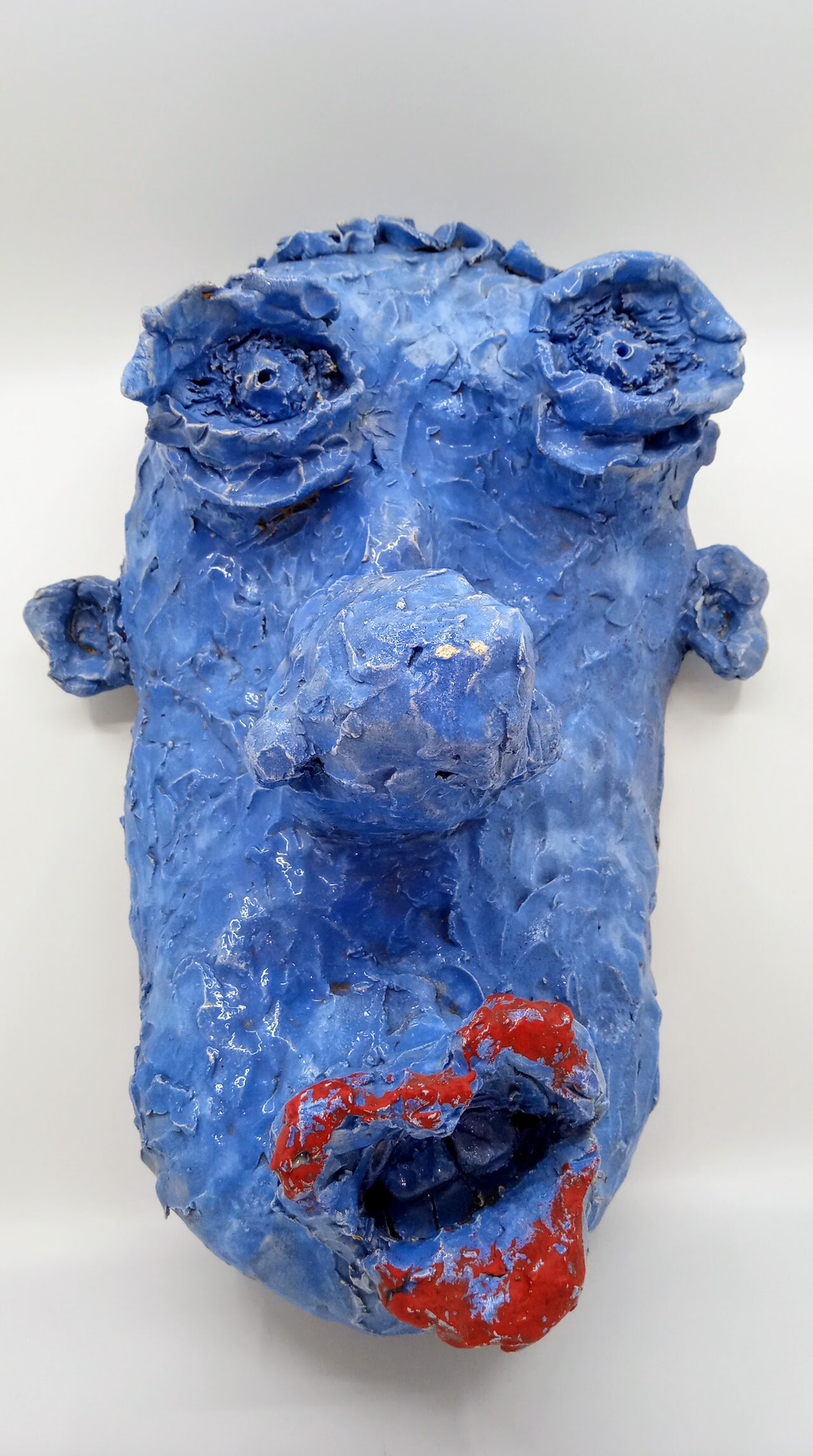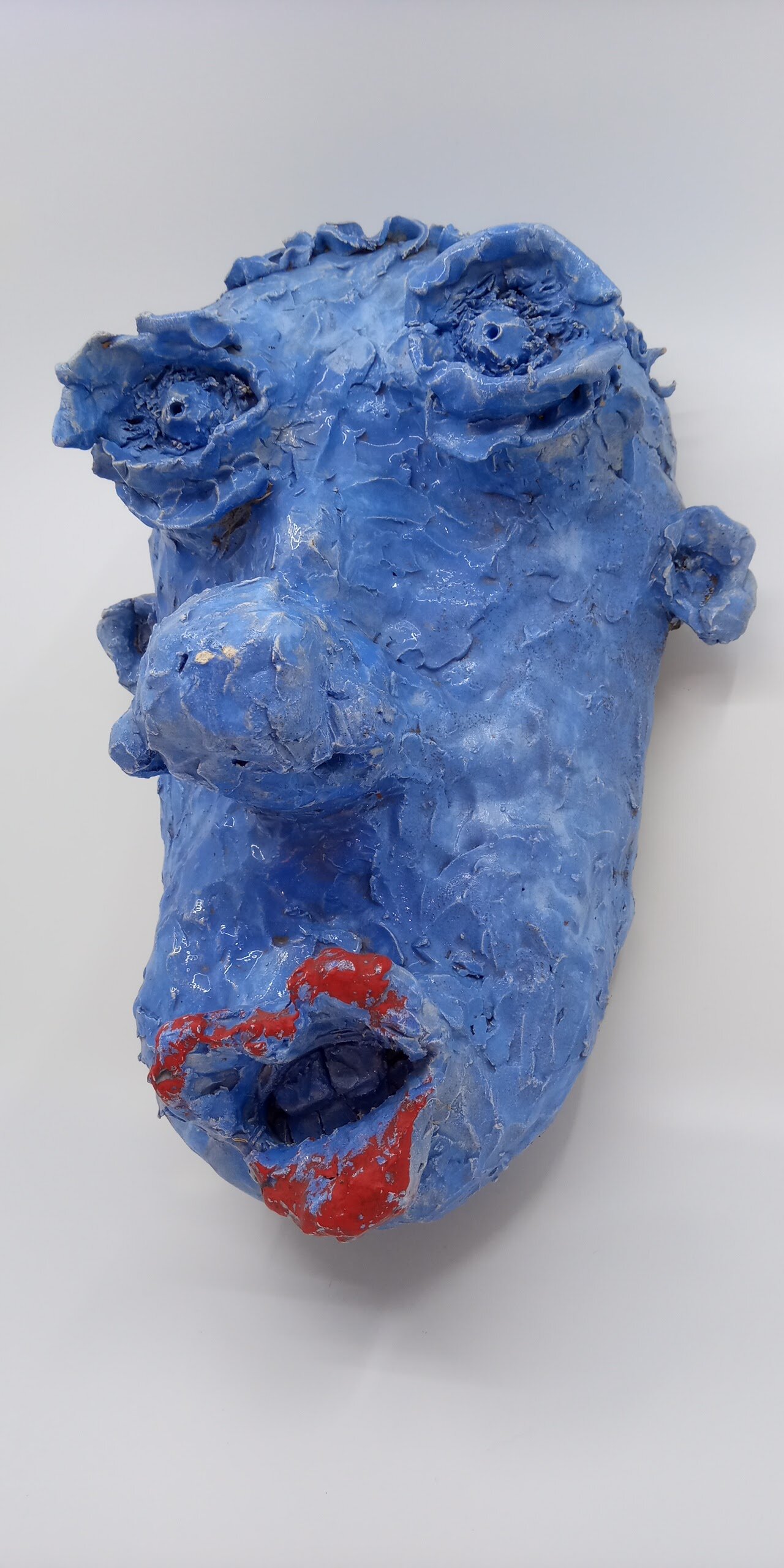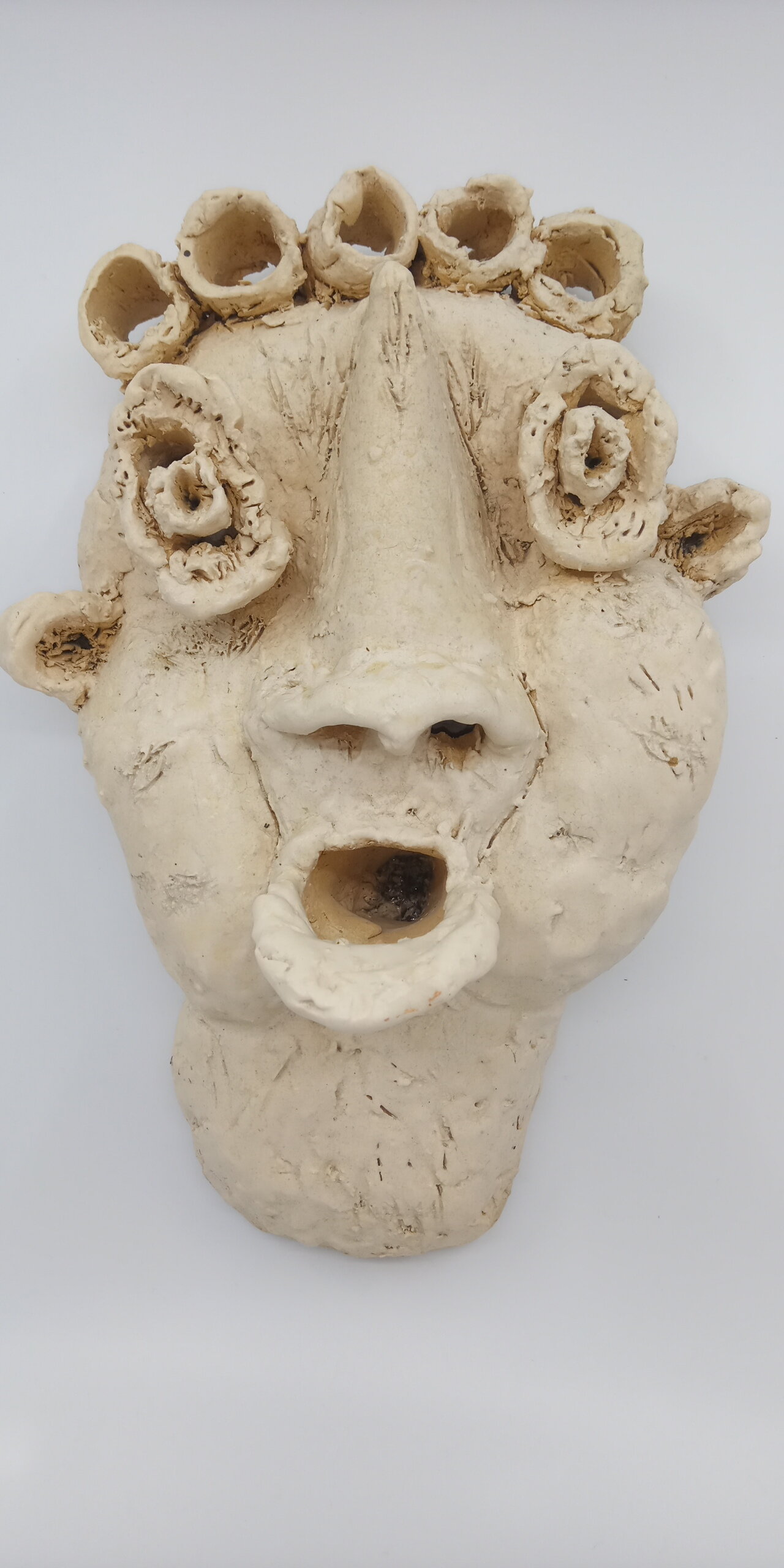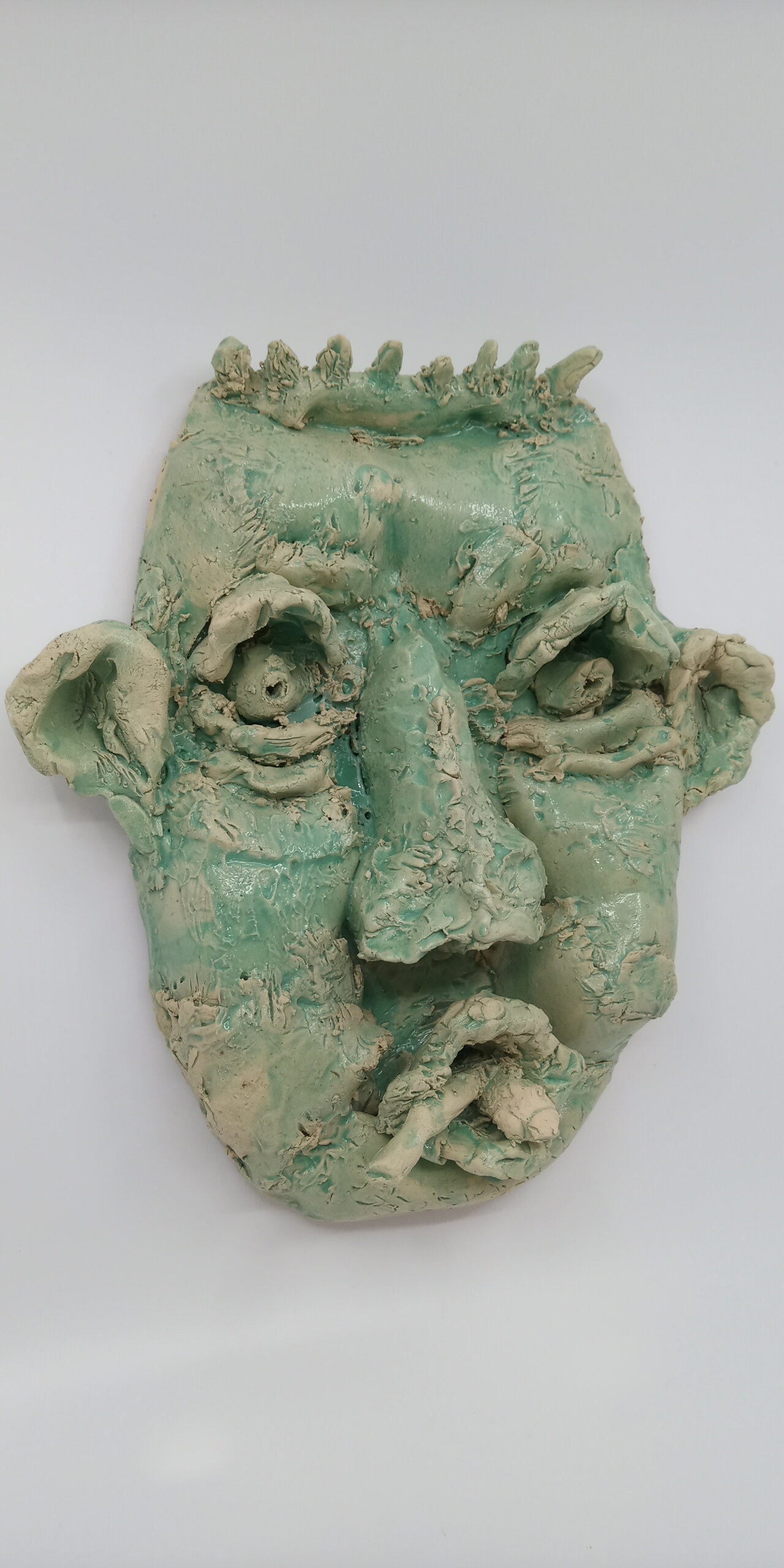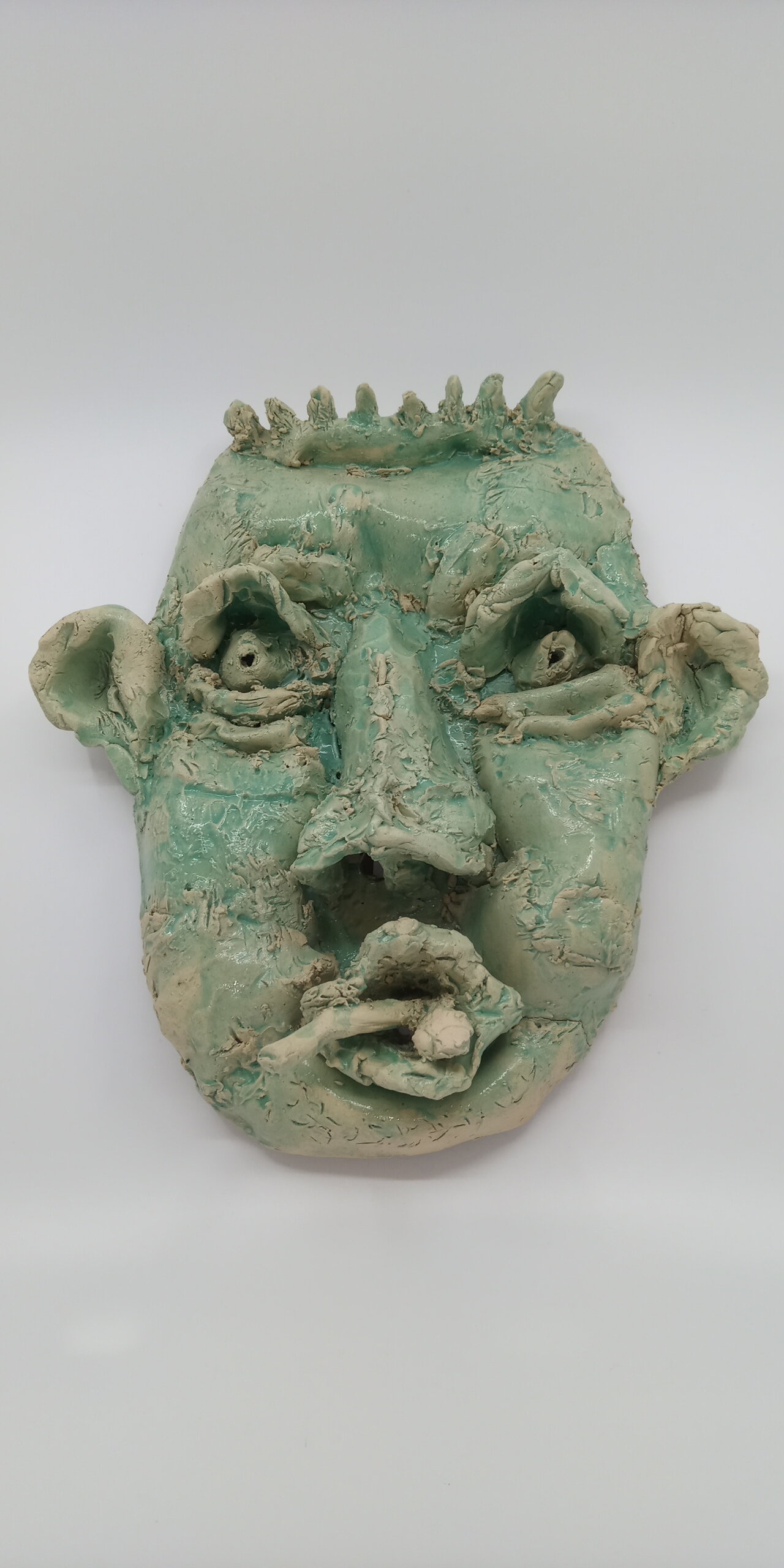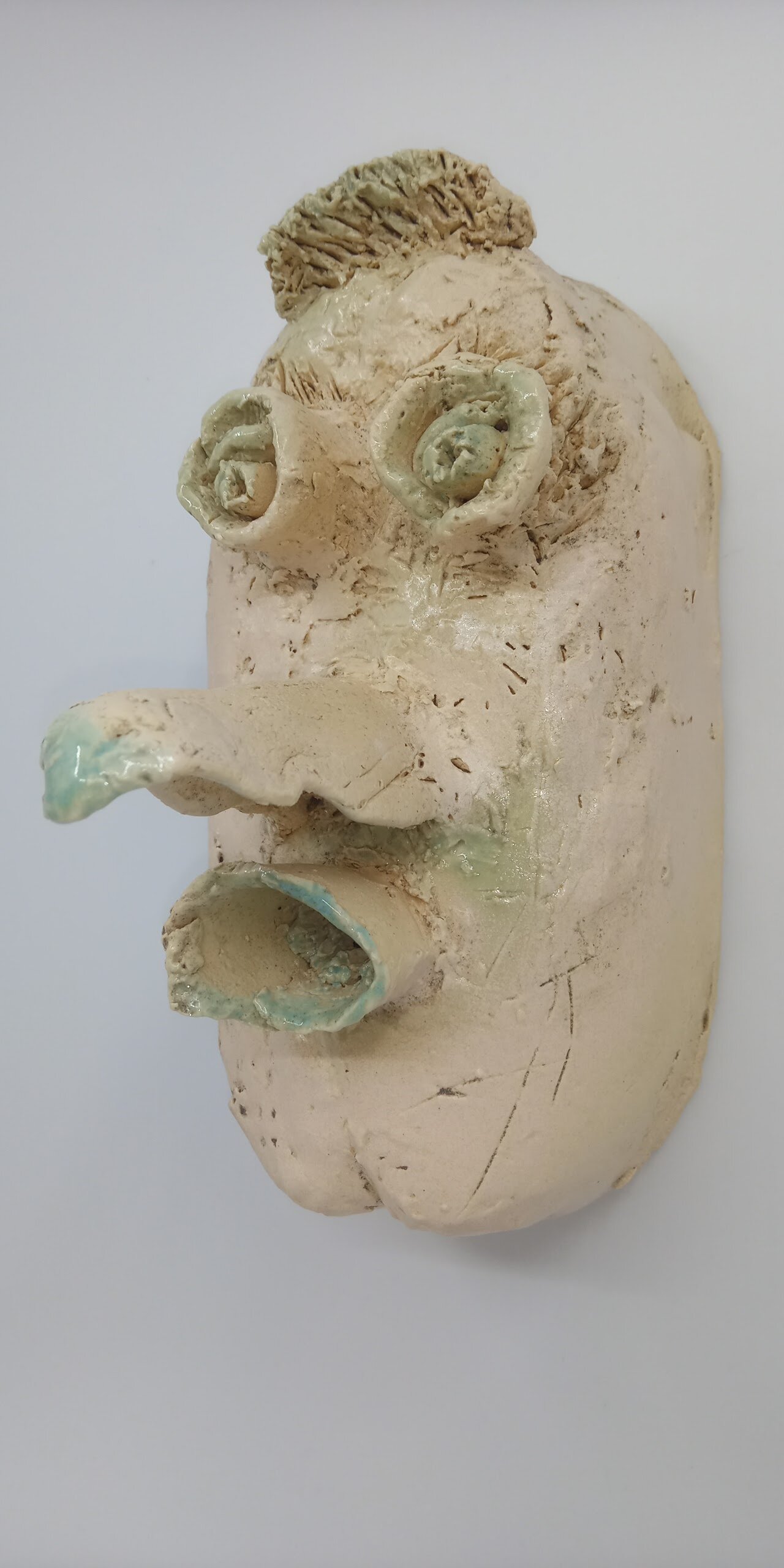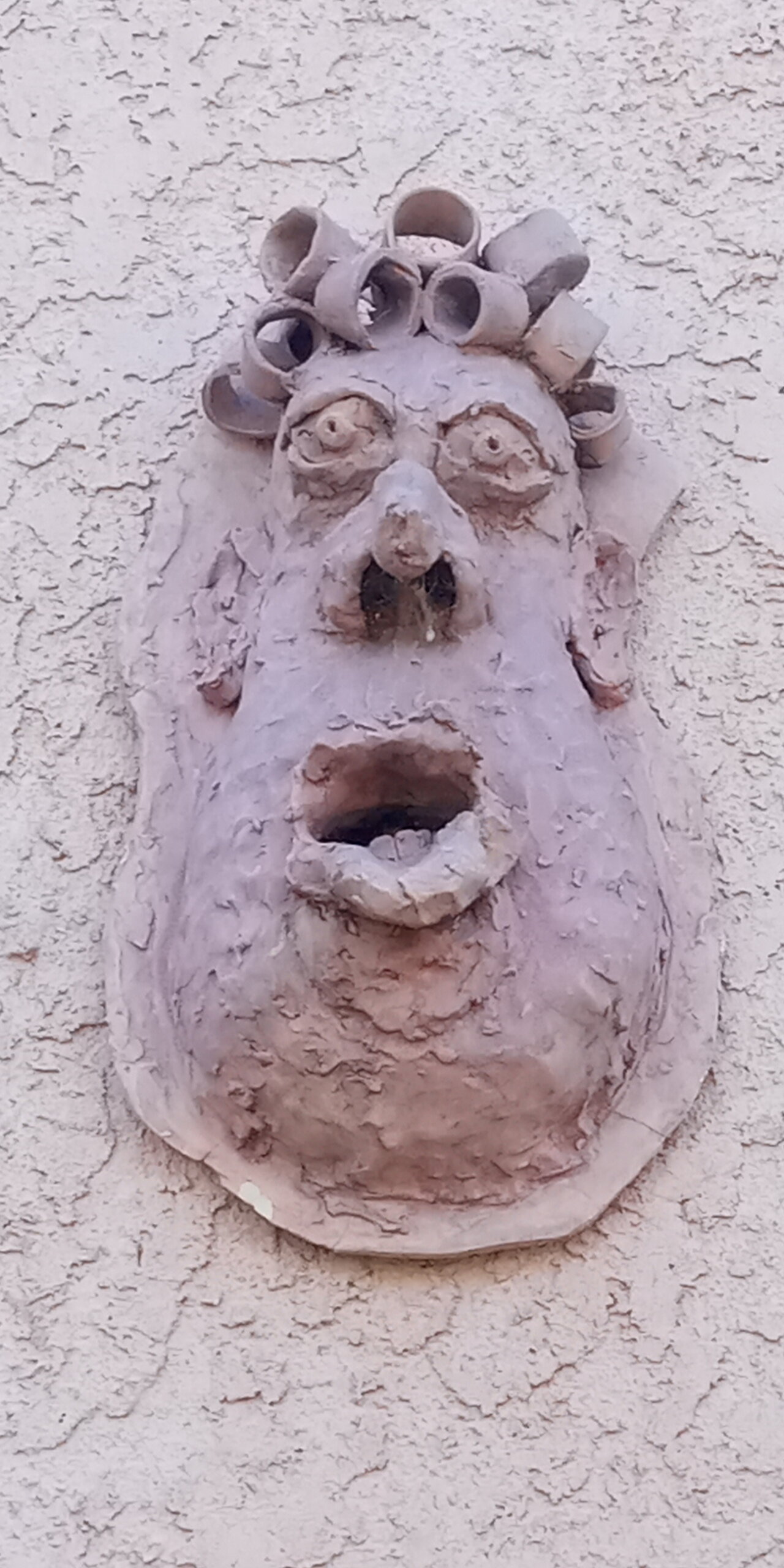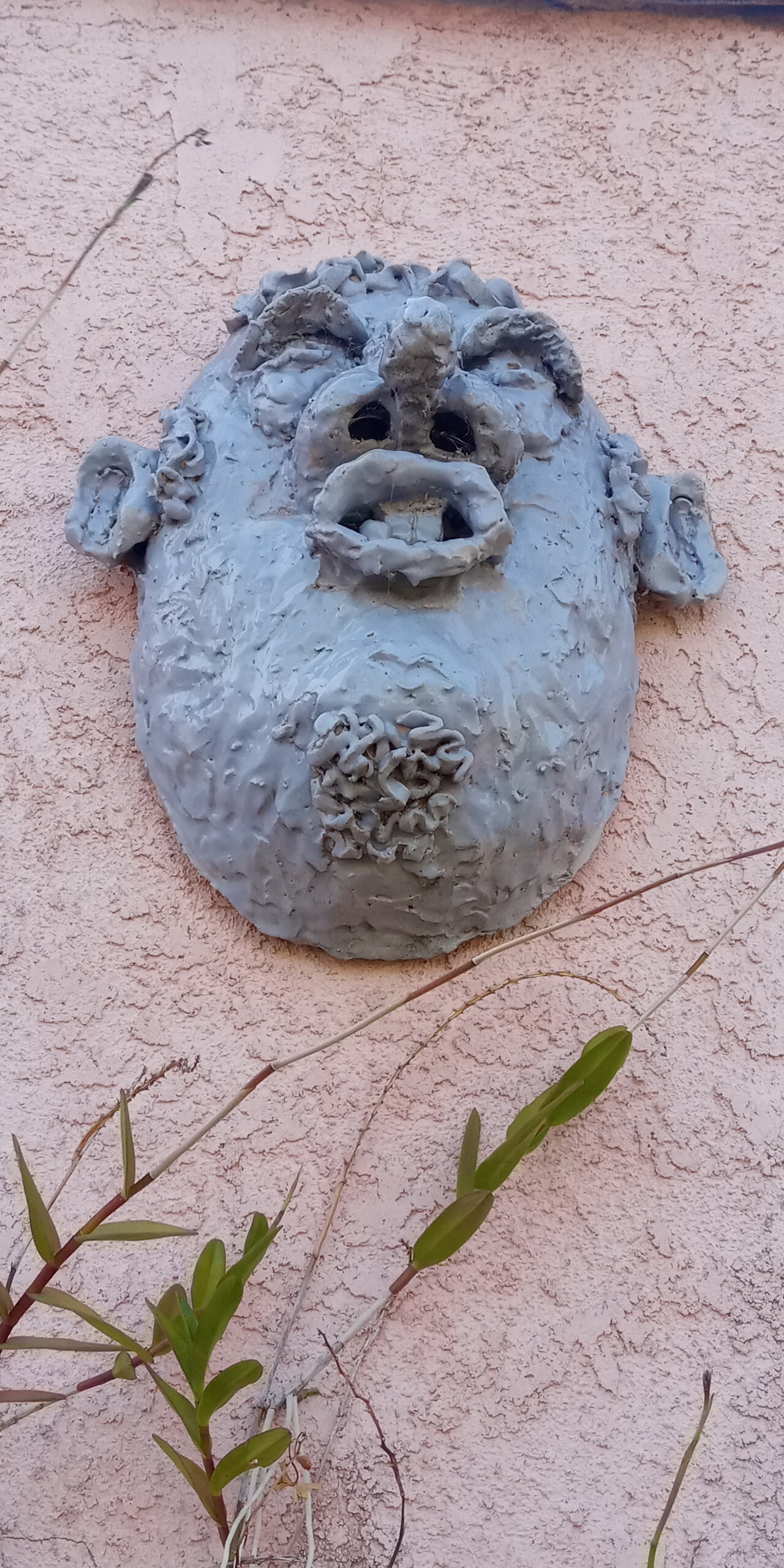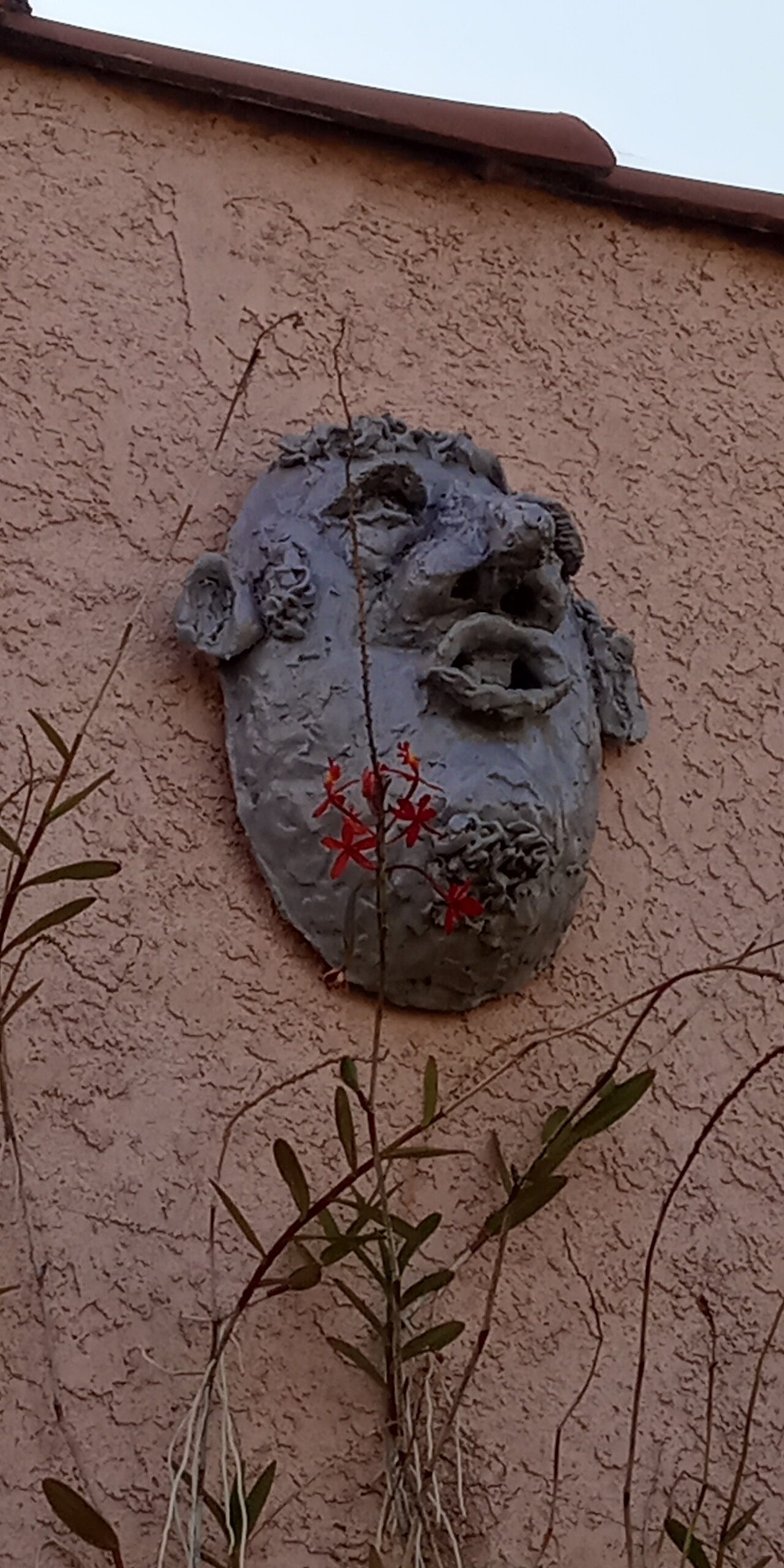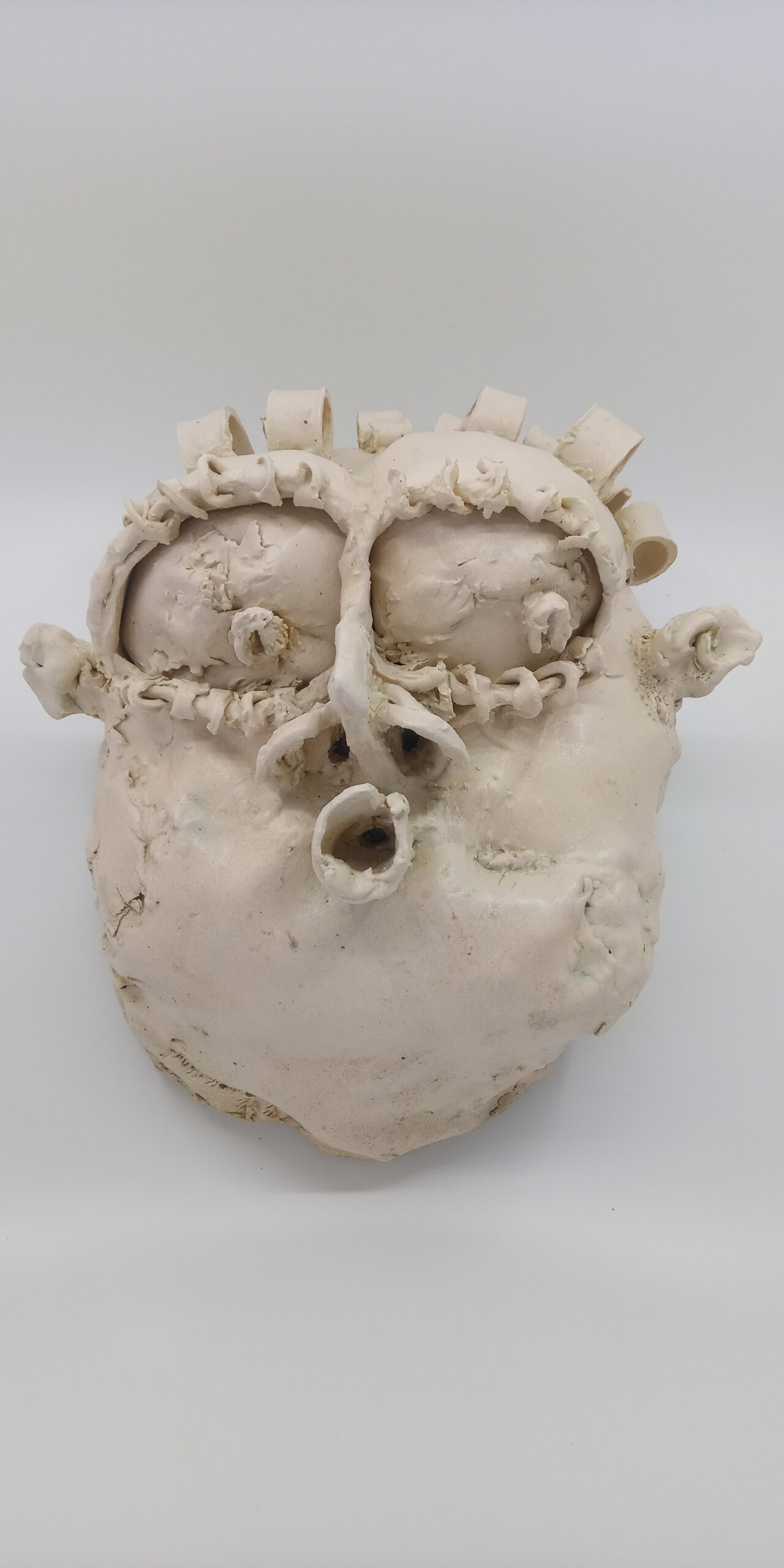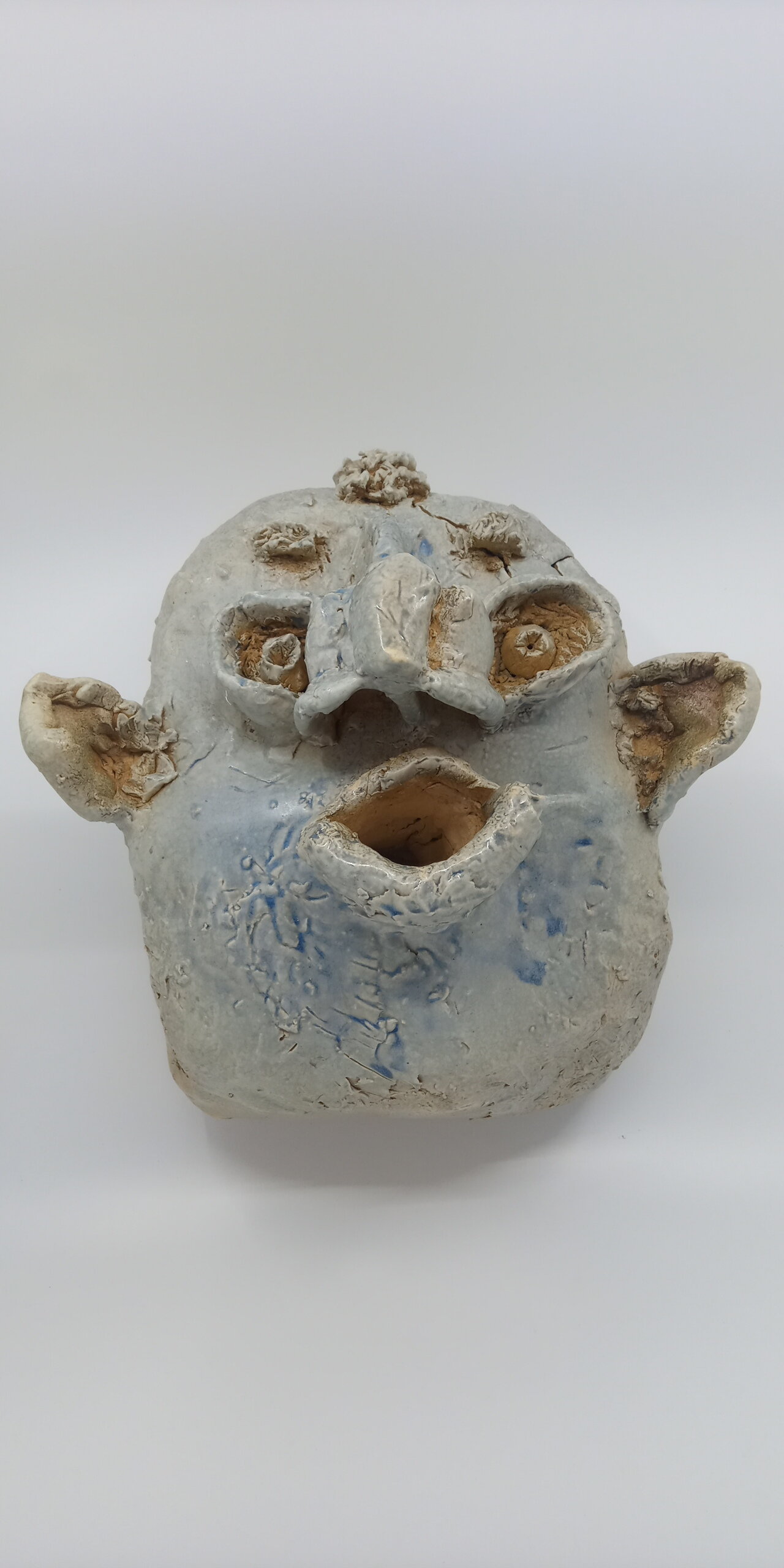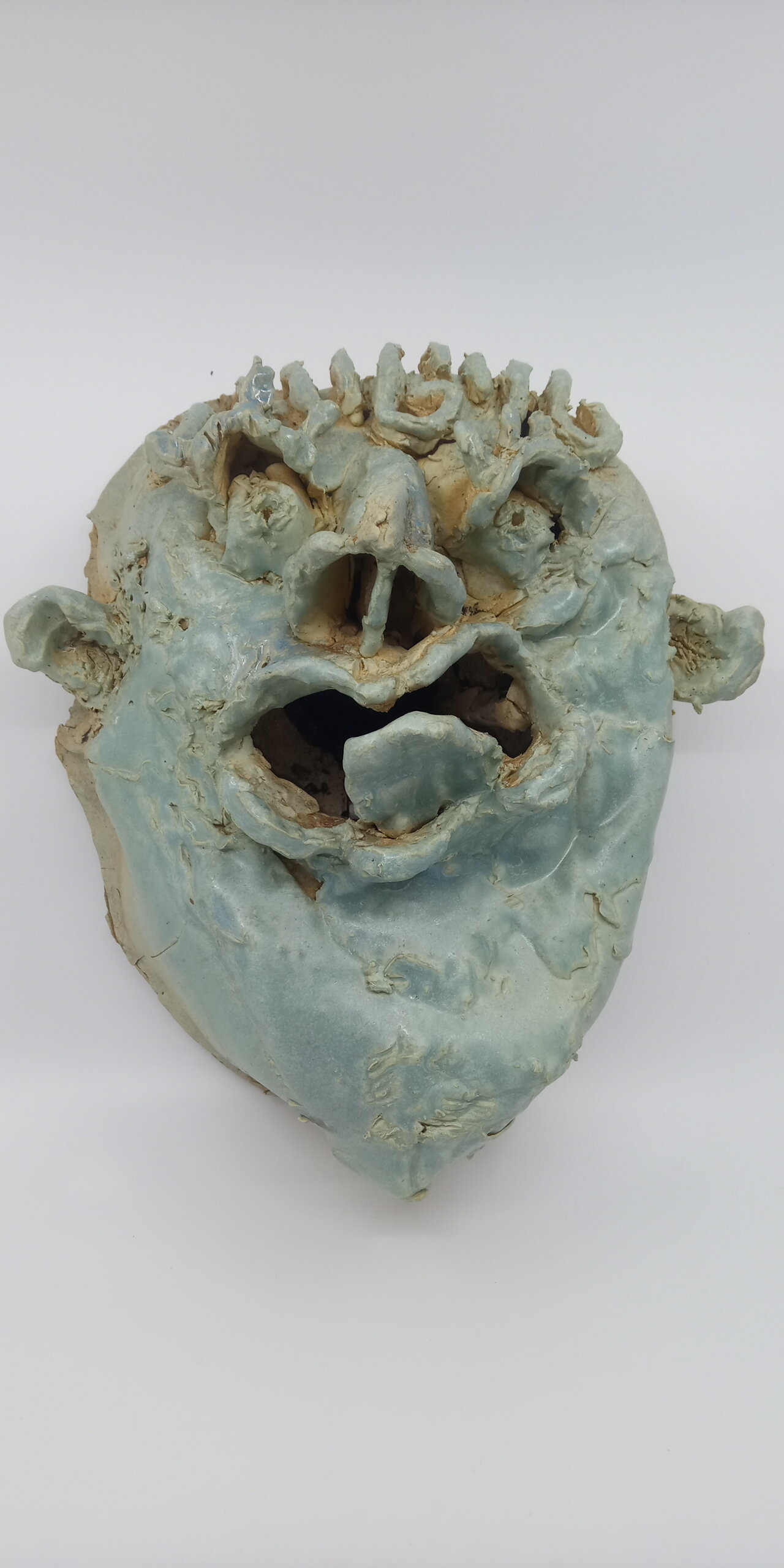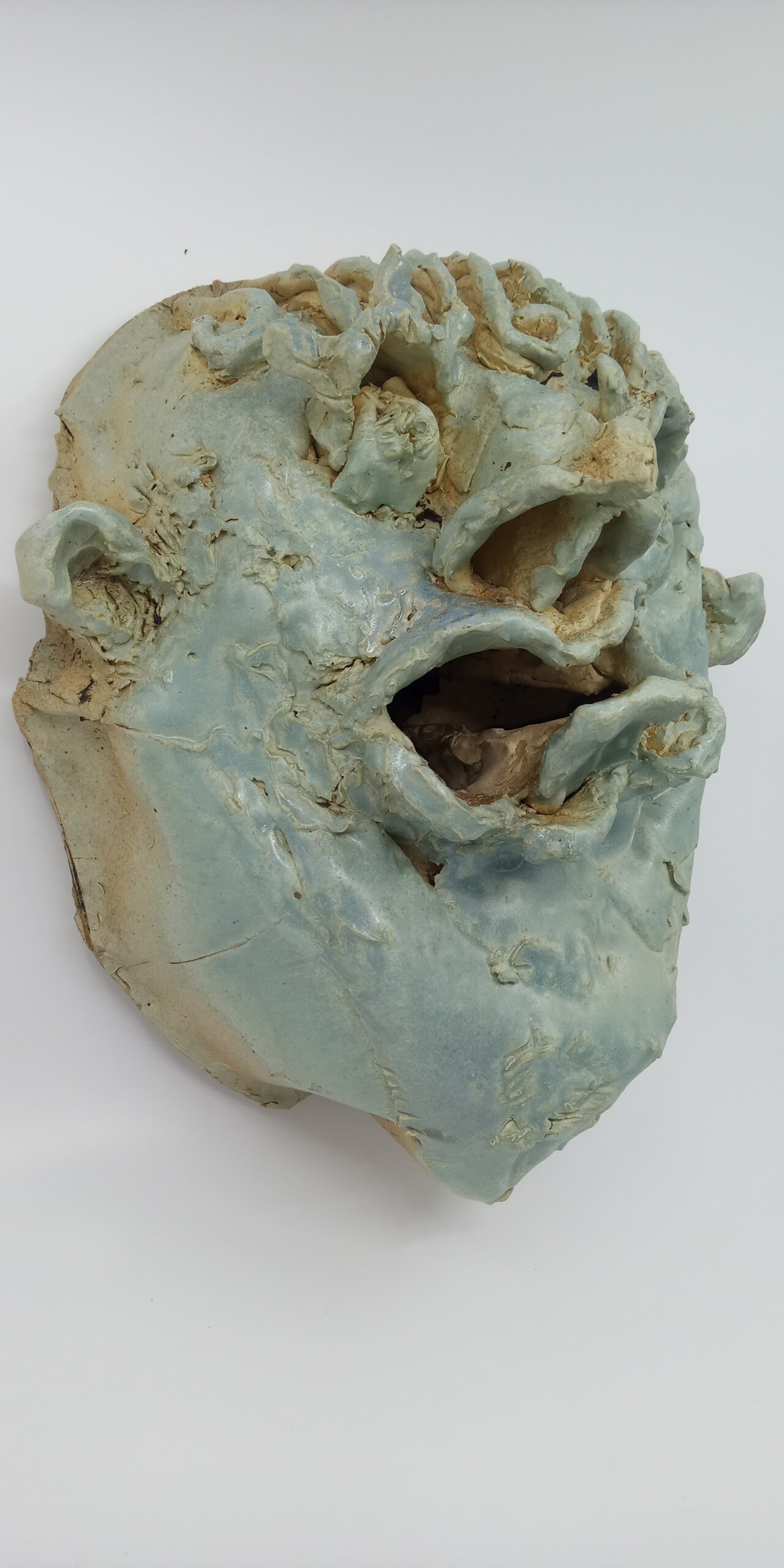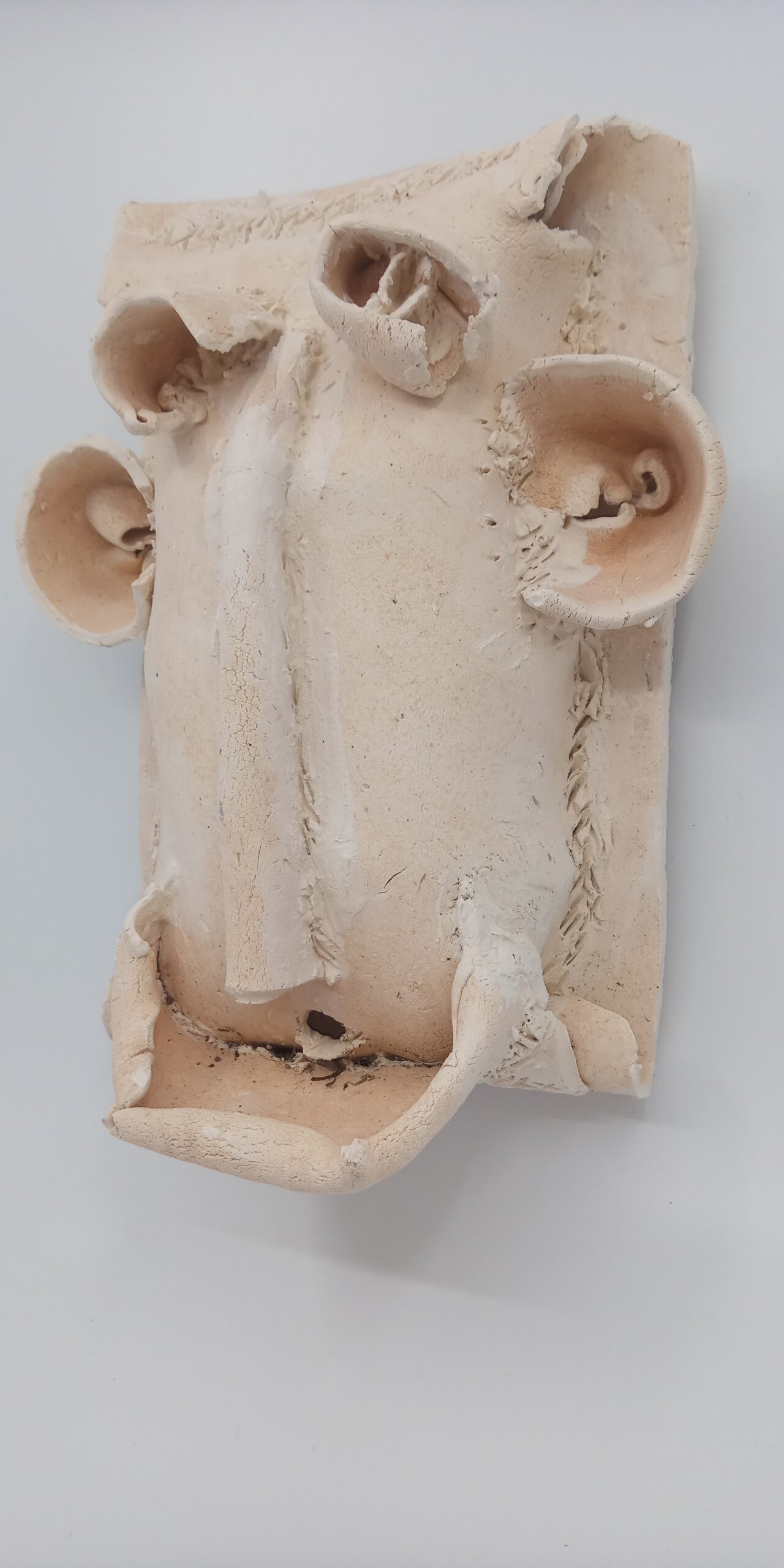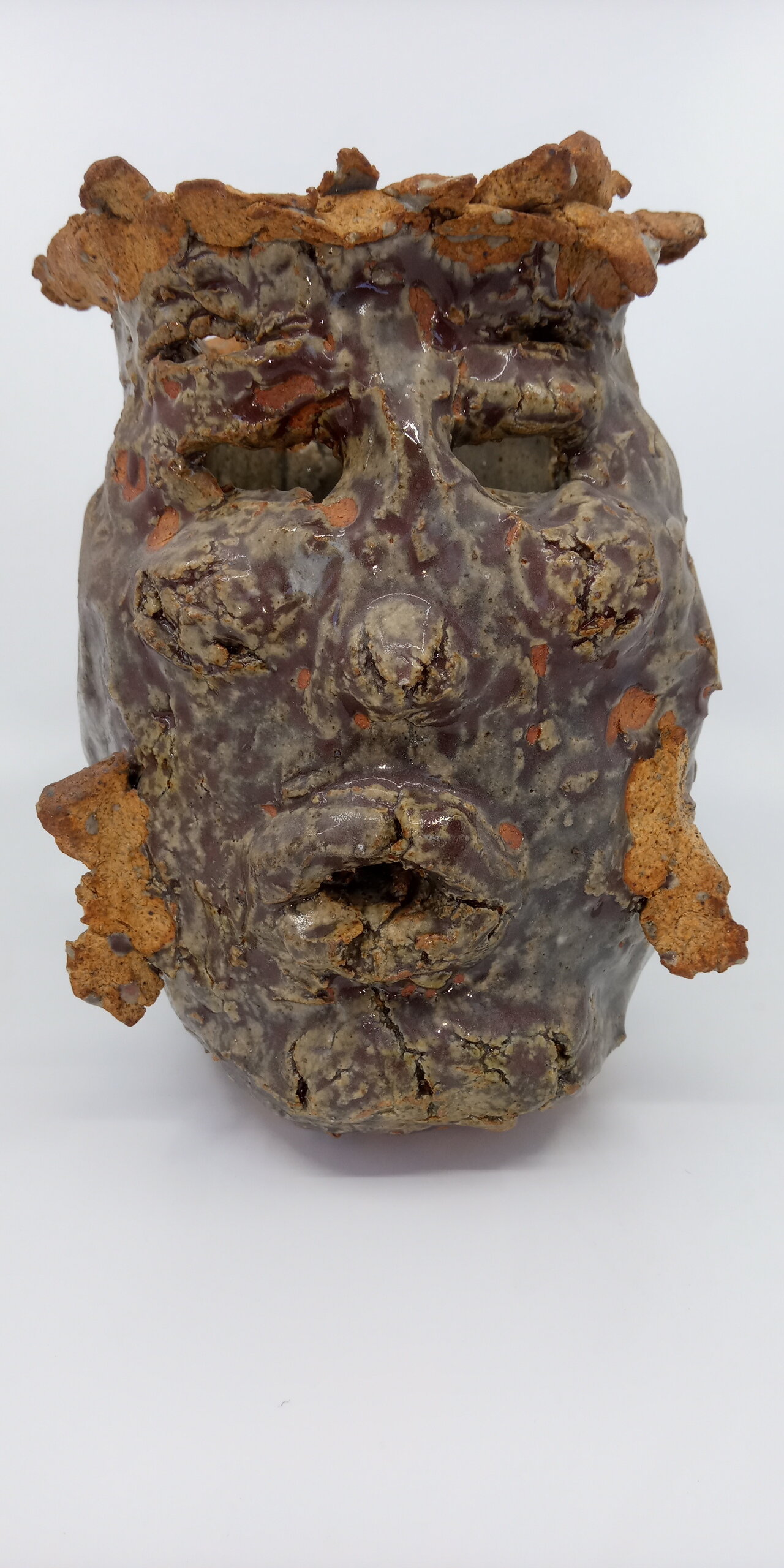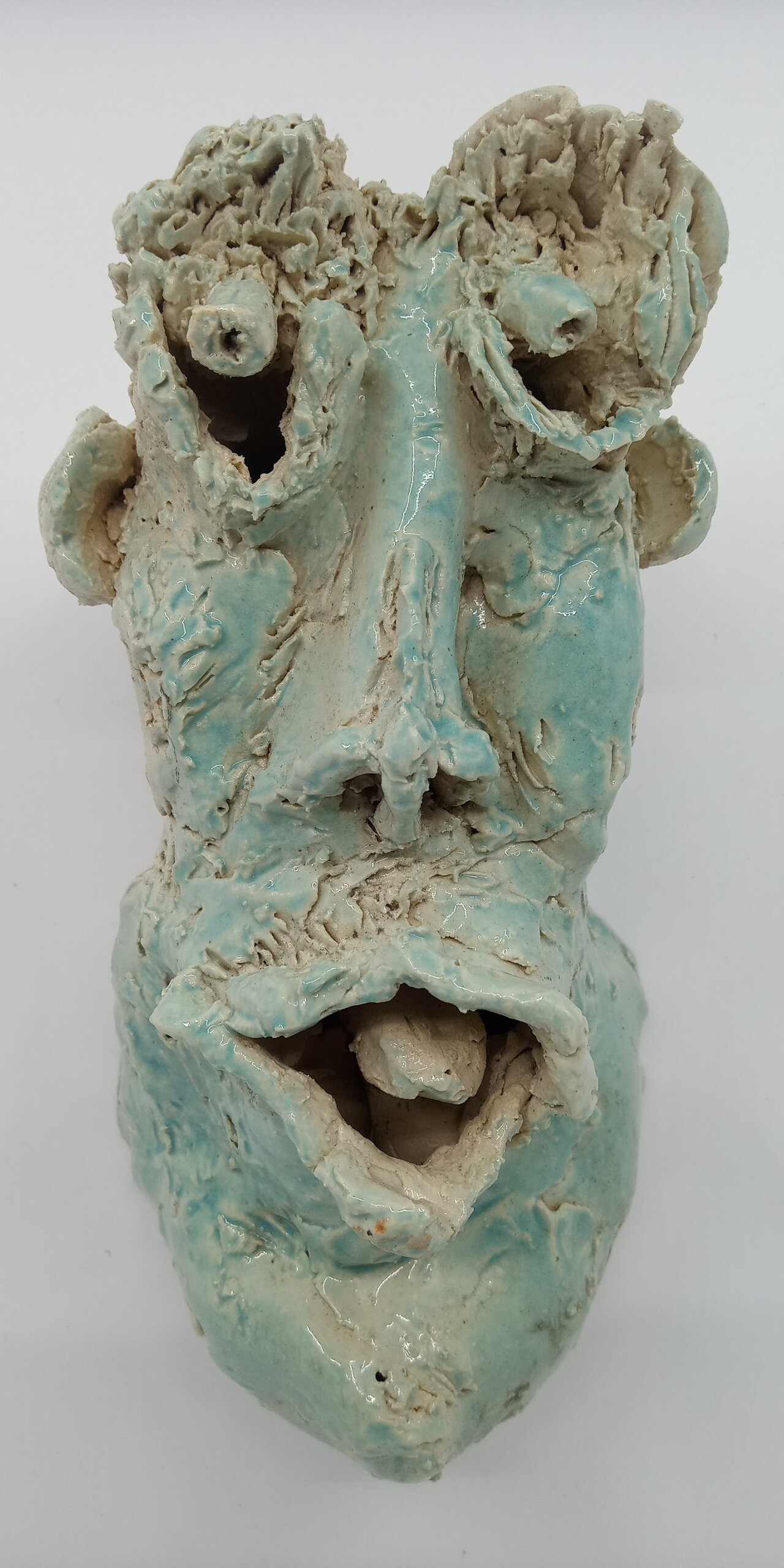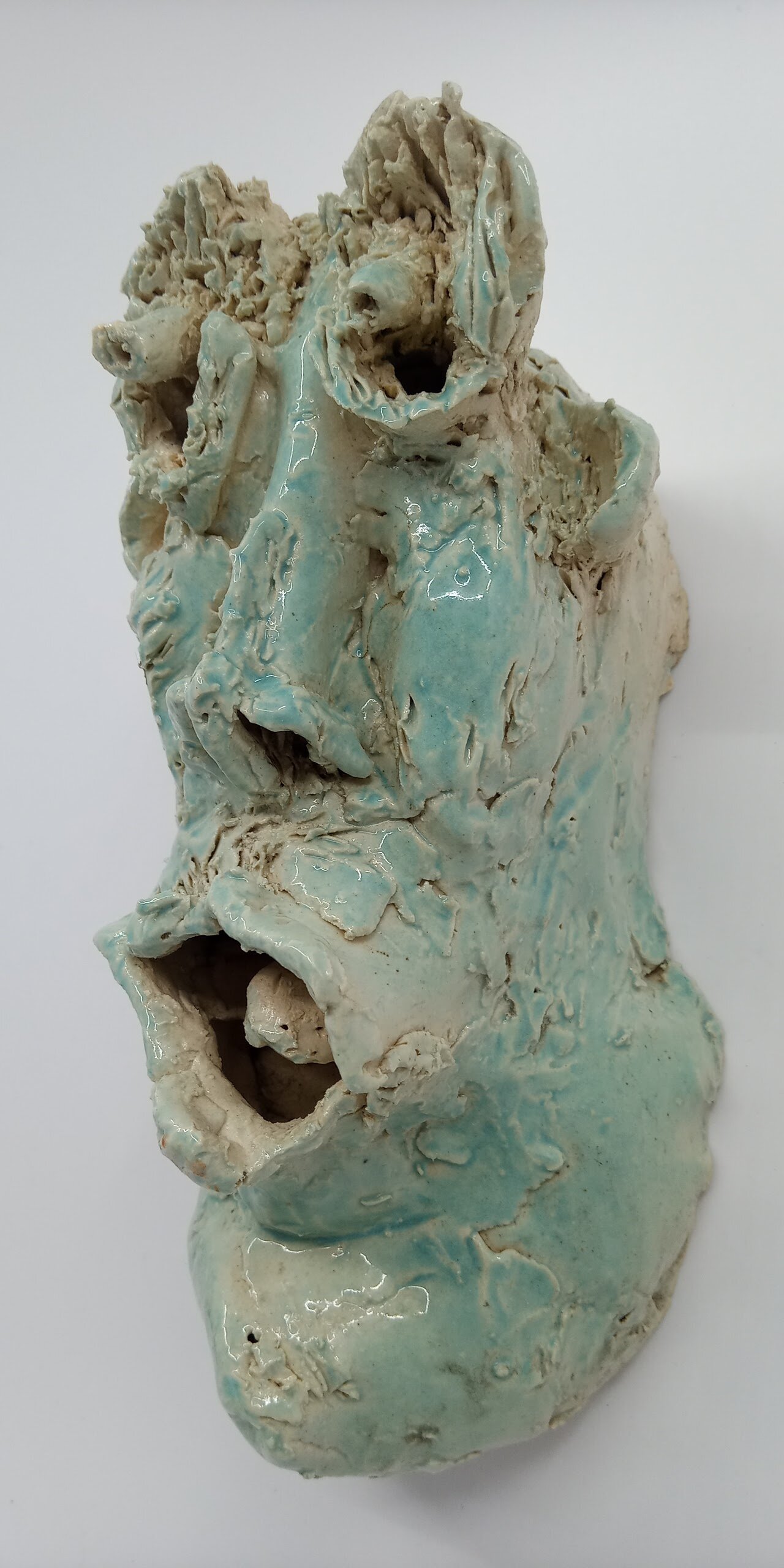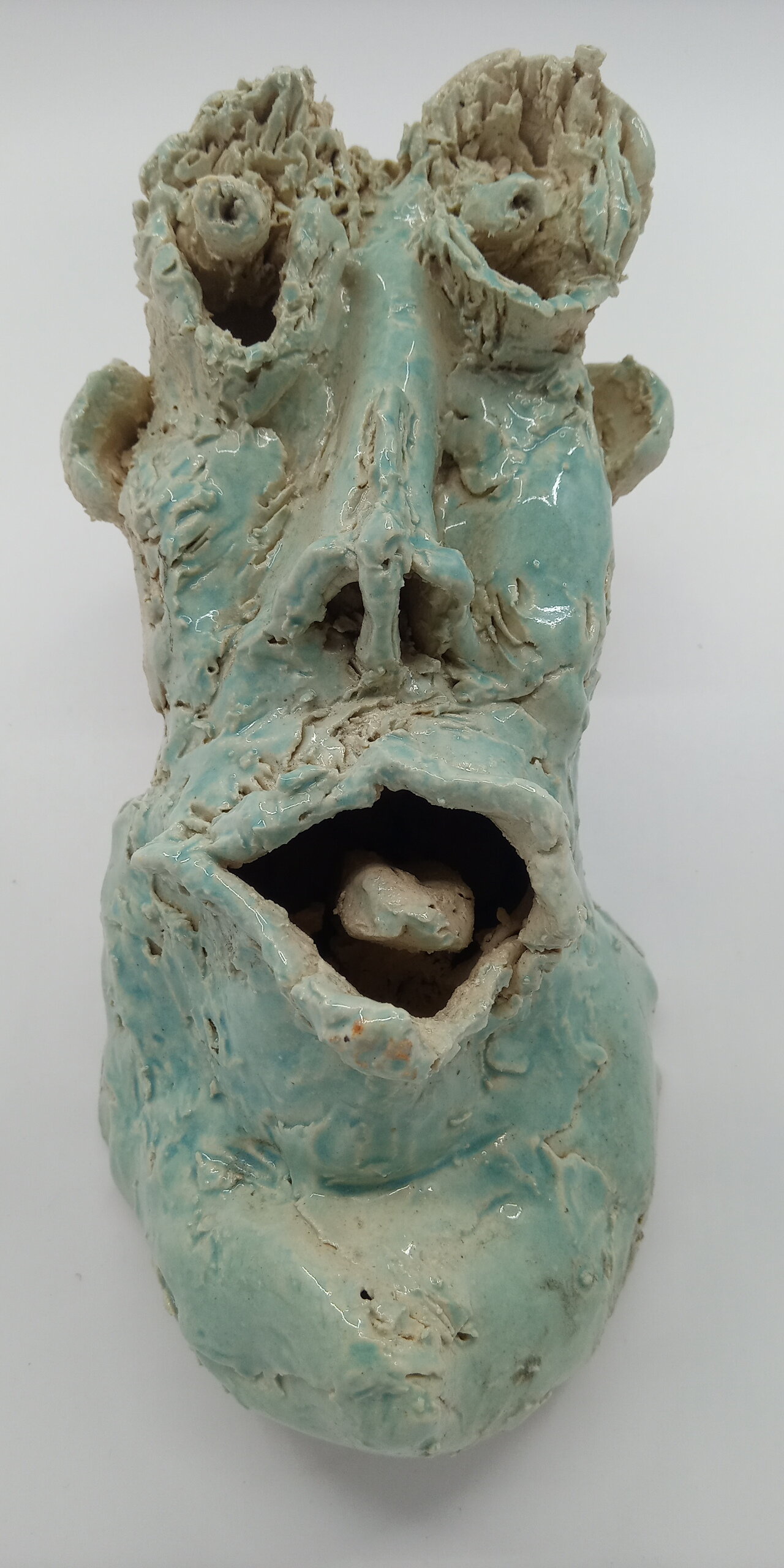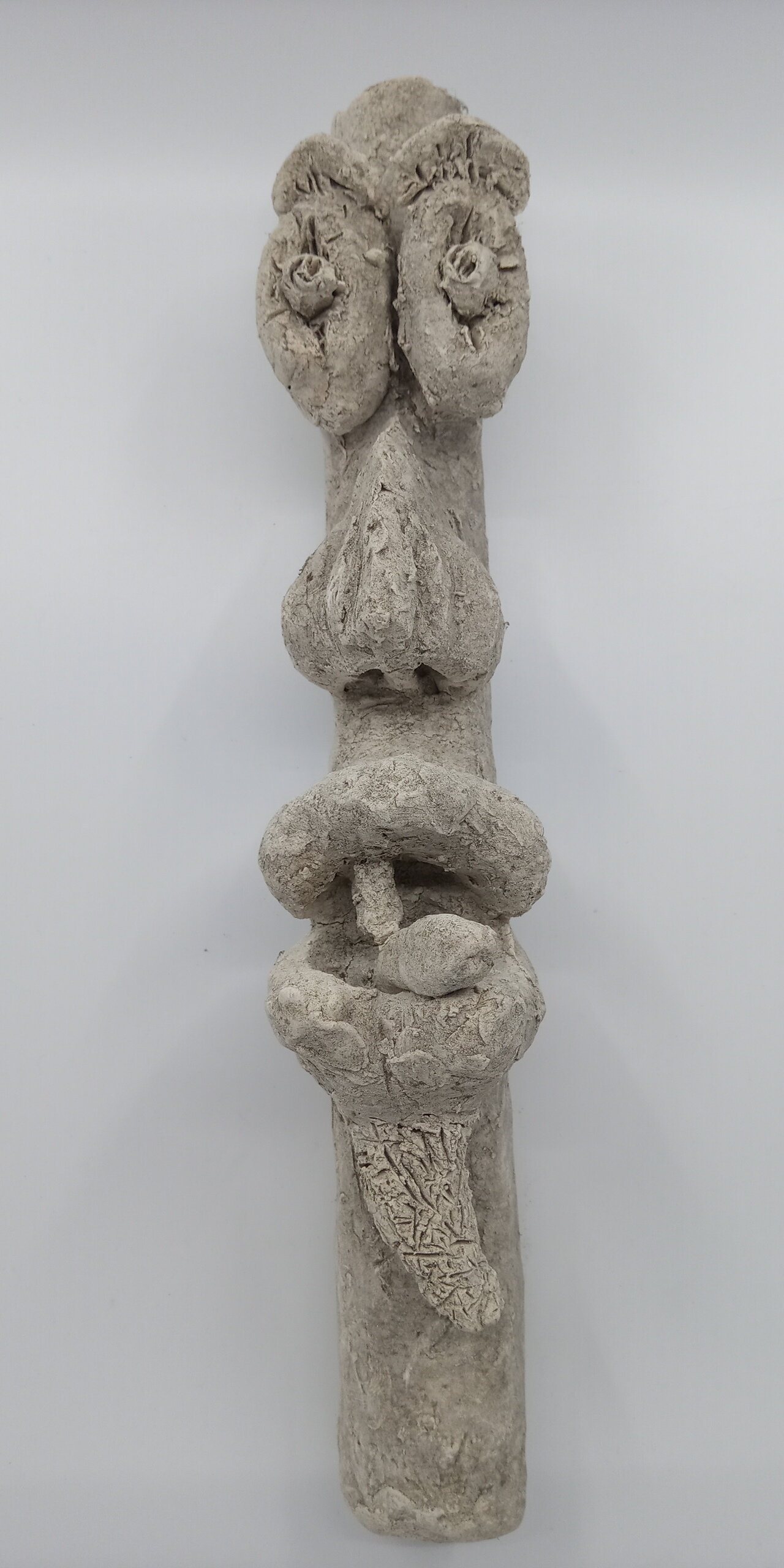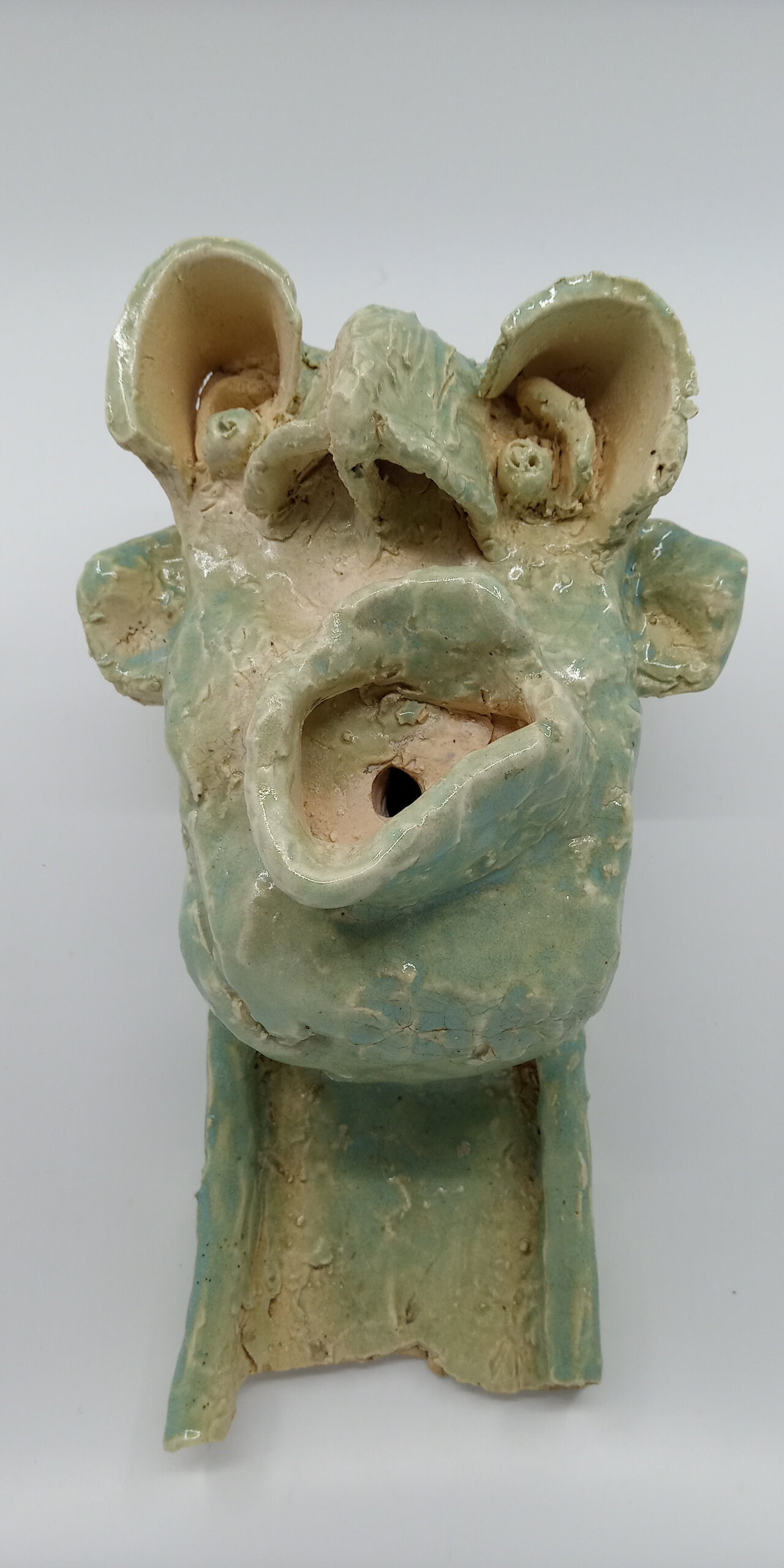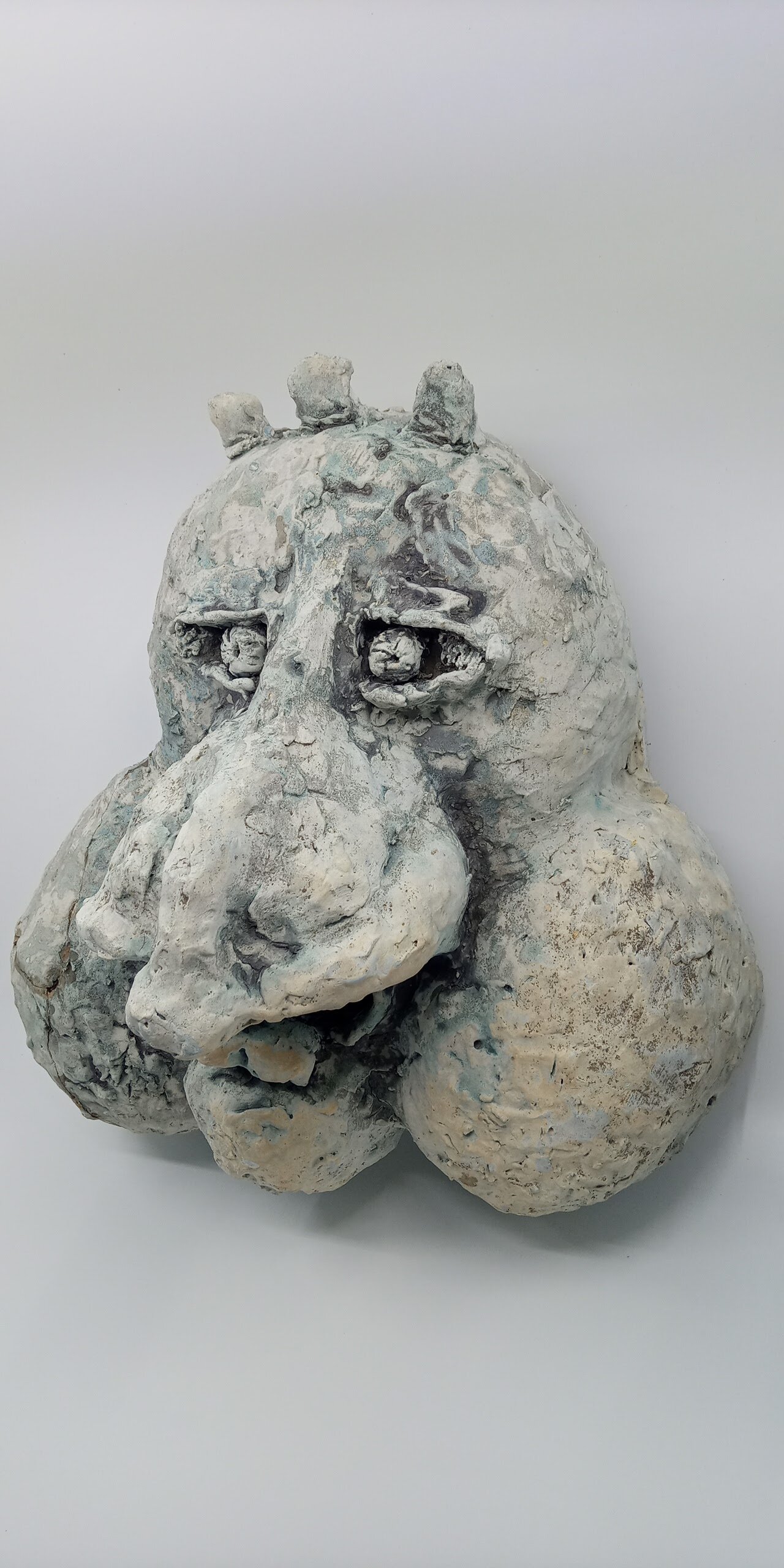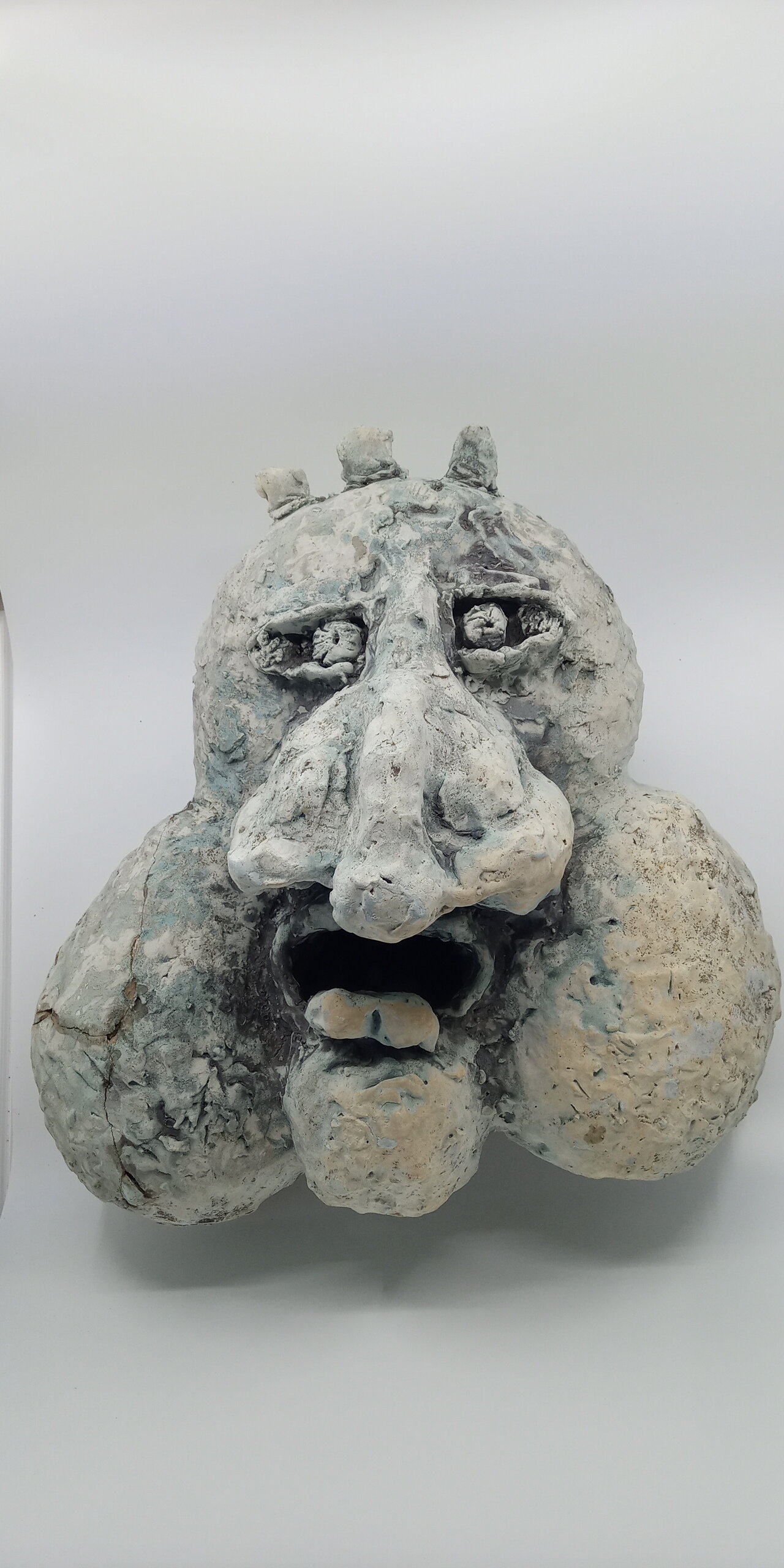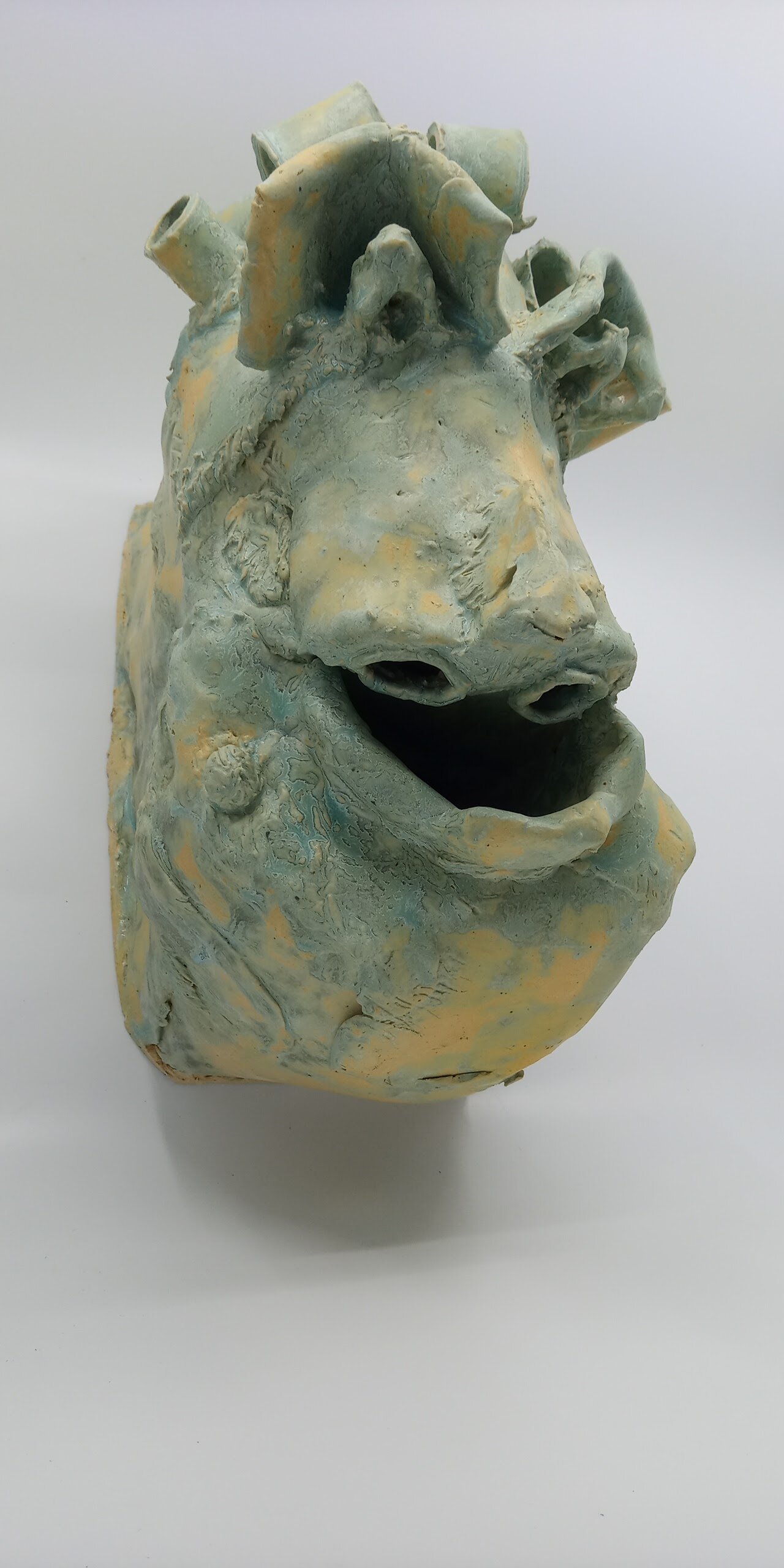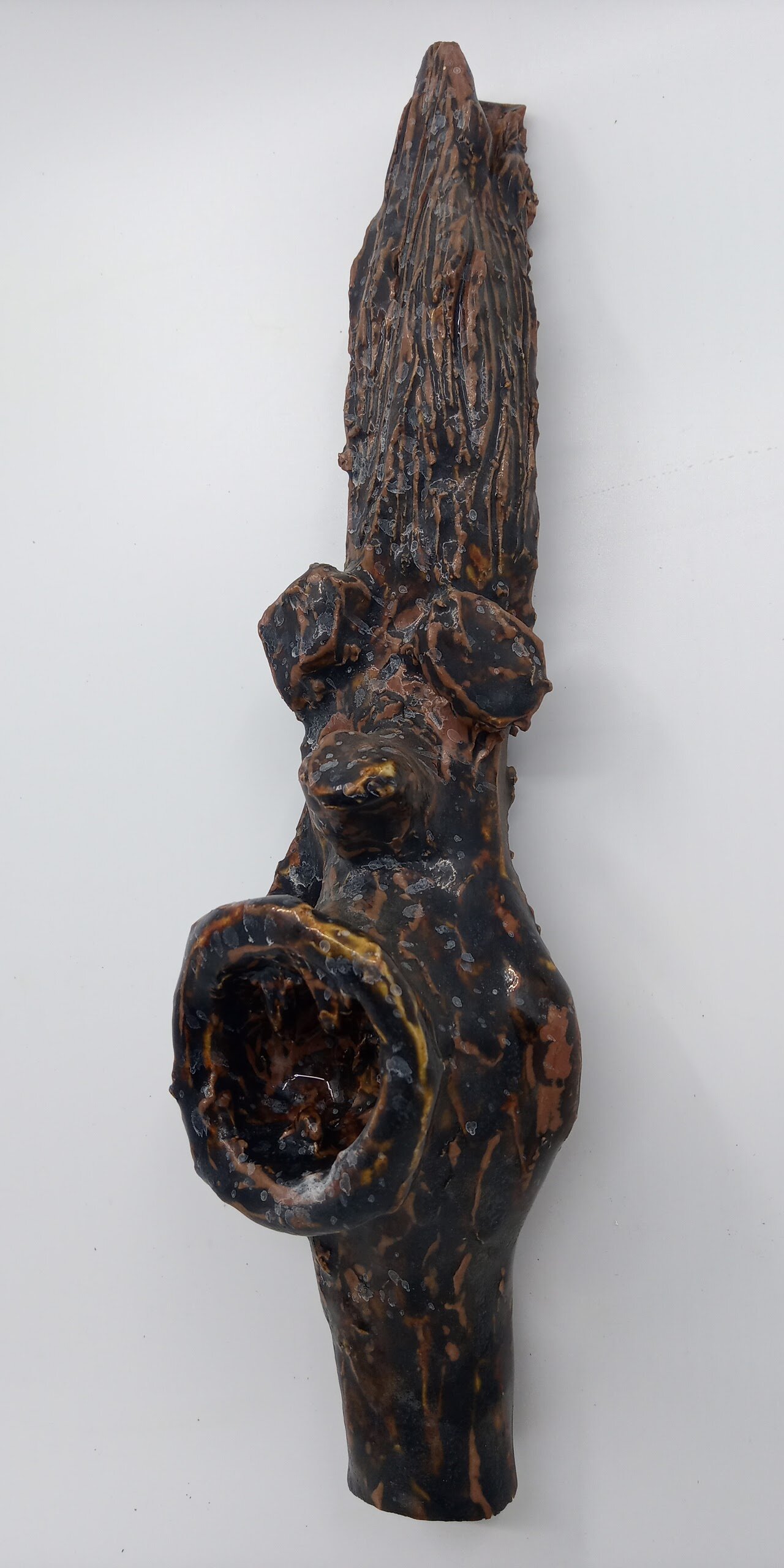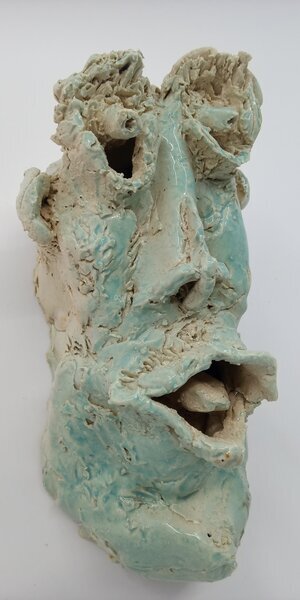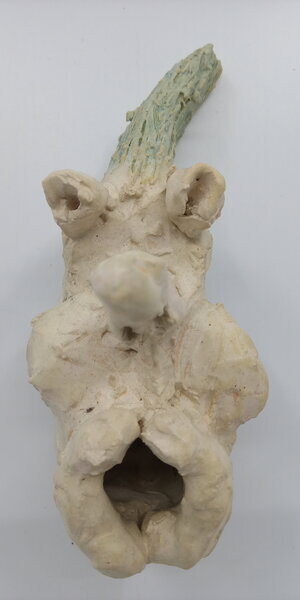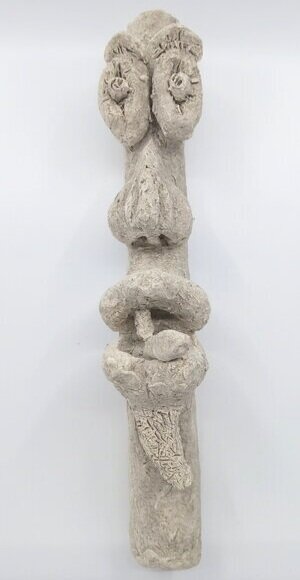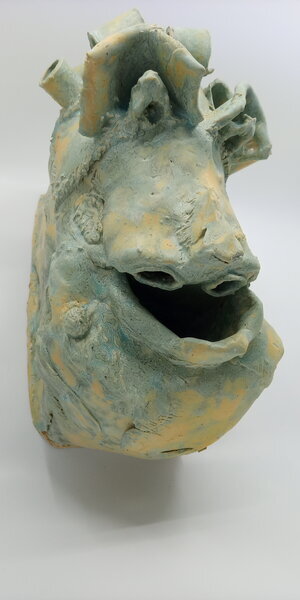














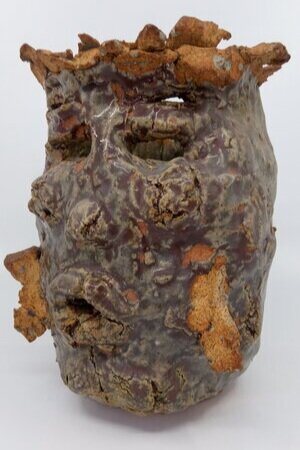












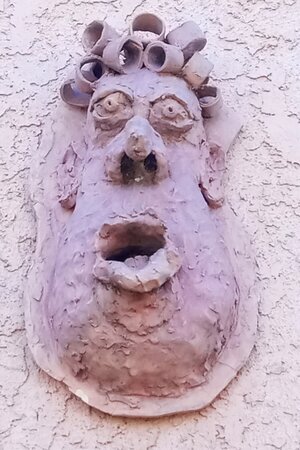
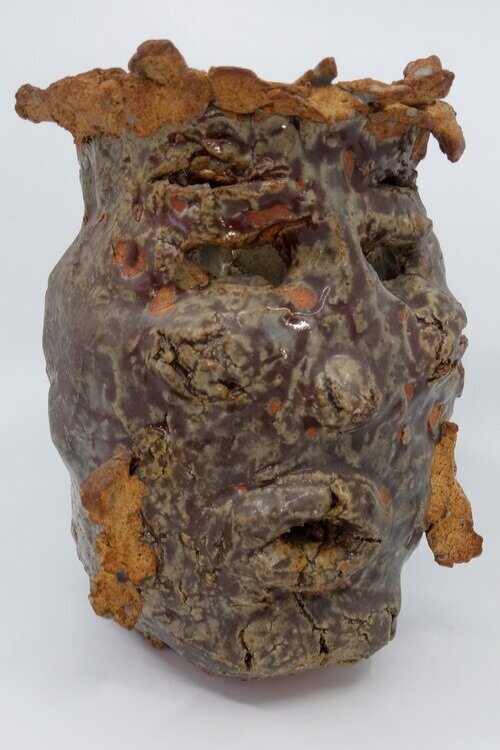
Lost Heads of the Modotpetoc Tribe
A pre-hispanic hunter gatherer people, the Modotpetoc were indigenous artisans. Inspired while consuming peyote, they created memorial masks of respected ancestors. These are the Lost Heads exhumed from ancient inland sand dunes, possibly burial sites, under the Civic Center in the City of San Francisco.
Archaeologists found the masks during restoration of an historic courthouse. They are ornamental face coverings considered to be icons of deities, dead and those still alive. Worn during ceremonies, the masks honor these who experience great earthquakes. They are worshiped by the tribe.
Continuing the custom to perpetuate the myth, modern day Modotpetoc display masks on their homes. These sentries welcome the rumbles of their beloved deceased. They represent bravery, not fear, and serve to celebrate future seismic events.
Lost Heads of the Modotpetoc Tribe
A pre-hispanic hunter gatherer people, the Modotpetoc were indigenous artisans. Inspired while consuming peyote, they created memorial masks of respected ancestors. These are the Lost Heads exhumed from ancient inland sand dunes, possibly burial sites, under the Civic Center in the City of San Francisco.
Archaeologists found the masks during excavation for a new government building. They are ornamental face coverings worn during ceremonies that honor both the dead and those still alive. The masks are considered to be icons of deities that are celebrated and worshiped by the Modotpetoc tribe, typically those who experience great seismic events.
Continuing the customs to perpetuate the myth, modern day Modotpetoc display masks on homes. These are guardians and sentries that welcome and celebrate seismic events. They represent bravery, not fear, and serve to greet rumbles of the beloved deceased.
Leroy
Tommy
Aunt Sylvia
Cousin June
Cousin Lester
Sister Esther
Baby
Junior Haislet
A PreHispanic hunter gatherer indigenous people, the Modotpetoc were artisans. Inspired when consuming peyote, they created memorial masks of respected ancestors. These are the Lost Heads exhumed from ancient inland sand dunes, possibly burial sites, under the Civic Center in the City of San Francisco. Found during excavation for a new government building, archaeologists consider the masks to be Modotpetoc seismic icons and deities. Celebrated and worshiped, face masks were ornaments provided as ceremonial offerings to those who receive, experience, and survive great earthquakes. Honoring myth, modern day Modotpetoc display masks on homes as guardians to welcome and celebrate seismic events with bravery, no fear, and as a greeting from the beloved deceased.
